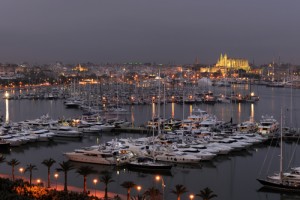The Balearic island of Mallorca has been one of Europe’s favourite Mediterranean holiday destinations since the onset of mass tourism in the 1960s. Today around 10 million people visit annually, drawn to its magnificent coastline, cosmopolitan capital, mountainous landscape, and the traditional villages nestled in between upmarket holiday resorts.
But Mallorca is more than just a holiday destination for many Brits. Around 11,000 of us own holiday homes, or are based on the island, drawn there by the 300 days of sunshine, the relaxed pace of life, and easy air access with numerous flights to Mallorca from across the UK.
So if you’re considering buying property abroad and venturing into the buy-to-let market, what better place to look than this sparkling jewel of the Mediterranean Sea?
The Appeal of Mallorca
One of Mallorca’s main selling points is the 345 miles of coastline surrounding the island, encompassing wide sandy beaches, with a multitude of hidden coves, historical caves and little inlets to explore. The glittering blue sea laps the beaches of a wide range of resorts, mostly concentrated on the north, east and southern shores, and numerous marinas ensure it’s also one of Europe’s premier yachting destinations.
The capital city of Palma de Mallorca – often referred to simply as Palma – is a cosmopolitan and trendy city nestled on the south of the island, in a bay famed for its spectacular sunsets. The stunning cathedral and royal palace are amongst the top tourist destinations, although many people are happy simply to wander around the narrow cobbled streets and charming squares, while sampling the bustling food markets and trendy restaurants and bars.
Venturing away from the coast, you will find a very different Mallorca, with traditional villages scattering the hillside, agricultural and wine-growing areas in the centre of the island, and pine-covered mountains to explore.
Buying Property in Mallorca
With its wonderful climate and diverse landscape, Mallorca has long been a hot destination for those looking to buy a second home or relocate to the sun. With its excellent transport links and growing reputation as a cultural hotspot, there’s something for everyone, and therefore great opportunity to maximise on a buy-to-let property.
Take some time to explore the island before deciding on a location to buy in, and be aware that many agents only deal with specific areas of the island, so may show bias if you’re undecided on location. There are some beautiful modernised stone houses in the old quarter of Palma, but properties here, and around the southwest coast, are at a premium due to their proximity to the airport and to Palma itself. New roads leading to the northwest and interior of the island have led to a property boom in these areas, while the east coast represents the best value for money, although it’s further from the airport and can be slightly cooler in temperature. Any property with a sea view is a goldmine due to new laws stating that no new developments can be built within 25 metres of the coast, meaning that your view will remain unhindered.
Estate Agents and Legal Advice
Estate agents are called ‘Immobiliarias,’ and most are multi-lingual. They are only lightly regulated, so ensure your agent is professional and displays a good knowledge of the market. Properties advertised through an agency generally include agent’s fees as well, and properties can be advertised with multiple vendors and, therefore, different fees.
Once you’ve decided on a property, appoint an independent property lawyer before making an offer. Avoid appointing a lawyer recommended by your agents, in case a conflict of interest occurs, and ensure your lawyer is registered with the Bar Association (Colegio de Abogados).
All foreign property owners in Spain have to obtain a NIE number – a foreign identity number, required to pay your property taxes – which you can do independently or via your lawyer.
Finally, if you are purchasing a buy-to-let property, be aware that all rental incomes have to be declared to the local government, and certain properties require a holiday rental licence before you can begin marketing your property to rent.


